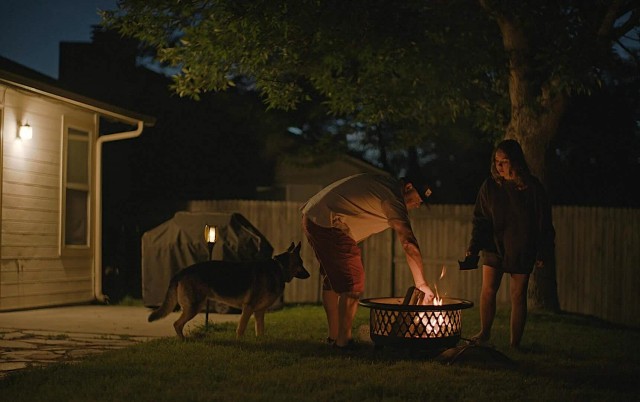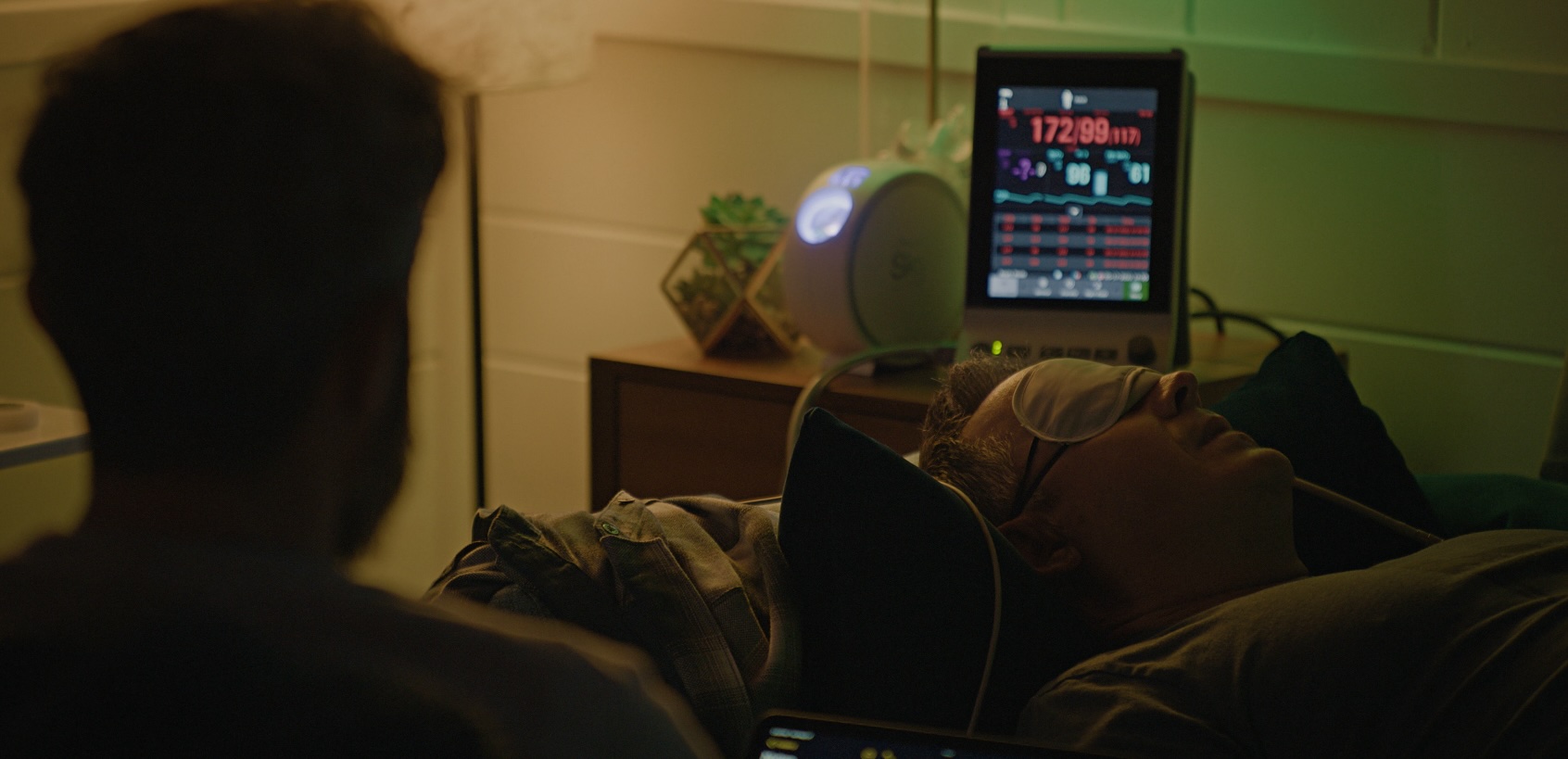It’s a small miracle when a film works. Some are better bets than others, but no one sets out to make a bad film, and I’ve been around long enough to see projects that appear good on paper fall flat. Even with a strong team, so much can go wrong—you plan and plan yet something ineffable fails to translate. That’s why I could never be a documentary filmmaker. It seems a masochistic enough enterprise when operating off of a script. To surrender even the illusion of control? To submit wholly to the serendipity of life and non-actors? No thanks.
Yet many talented storytellers take that gamble. The logline of today’s featured short film suggests an earnest issue doc—and An Act of Service is that—but for those that may be biased against this form of documentary, the “importance” of a film’s message is not something that weighs very highly for us. My advice has always been to make a great film first and then the rest of your mission’s aims fall into line. Besides, as a liberal coastal dweller who has taken all manner of illegal drugs in his lifetime, I am not director Brandon Kapelow’s target audience. He wants to reach the first responders in conservative states for whom this premise is revelatory and potentially life-changing—I’m immediately wondering about the efficacy of Ketamine versus MDMA.
I write these two asides at the top in a roundabout way of arriving at my central point, which is that An Act of Service is a great film and that greatness is less about what it aims to do, but instead how it does it. I’ve discussed in previous reviews the rarity of genuine “arcs” in short documentaries, but Kapelow and team put in the work with their subject over a long period of time and it pays off in a journey of distinct and legible steps, peppered with magical moments.

Rob’s relationship with his daughter is a secondary narrative that colors and complements his journey in therapy.
Rob, the subject of the film, is engaging on camera but not magnetic, so what Kapelow captures is not so much charisma but an almost discomfiting degree of intimacy—Rob in unguarded moments with his therapist and tender moments with his daughter. Scenes are confidently paced, so while the film may be perceived as slow and contemplative, it is astonishingly precise. I come back to the introductory point by way of contrast— it’s hard to imagine a film, let alone a documentary as immaculately constructed as An Act of Service. At every point of the film’s structure, a perfect line is uttered or moment is captured that underlines the thematic or narrative need of the story. It’s well understood that documentary films find themselves in the edit, but An Act of Service struck me as too perfect, like a scripted work! It’s black magic…how?!
Part of Kapelow’s secret must be that, while I was dismissive of the importance of the film’s central issue, he is not—the filmmaker has been volunteering in suicide prevention since his teenage years, motivated by the trauma he experienced when his father took his own life. This deep familiarity with the field and the credibility it provides the project is surely essential. Additionally, the team takes fascinating steps to cultivate the intimacy they capture. Kapelow shared a detail in this regard noting, “During in-clinic sessions, we employed a remote camera approach that allowed us to stay outside the room where the therapy was taking place. Psychedelics create a highly impressionable frame of mind, so we wanted to be sure that our work was in no way a distraction to our subjects’ experience. We used a remote head and zoom lens in conjunction with mirrors placed strategically throughout the space that allowed us to get a variety of angles without having to physically move the camera position.” This degree of deep knowledge and thoughtfulness extends to all aspects of the project and while, to a layperson like me, the finalized film feels almost staged in its precision, it is this deep preparation that lays the groundwork for magic.
Debuting last month in The New York Times as part of its Op/Docs strand, the story of An Act of Service is not yet done. “The American West – the part of the country that I call home – has some of the nation’s worst mental health outcomes,” Kapelow tells us, “I wanted this film to address that disparity by telling a story that challenges conservative assumptions of what a psychedelic user looks like.” To that aim, Kapelow, in conjunction with Brooklyn’s celebrated production company, Voyager, is in post-production on a feature-length version of Rob’s story, one Kapelow promises will, “…take a deeper look at Rob’s therapeutic experience, the parallel journey that his daughter Keylie undergoes with her own mental health and their intergenerational dynamics, and also more thoroughly explores the experiences and challenges of first responder communities in the West.”

 Jason Sondhi
Jason Sondhi